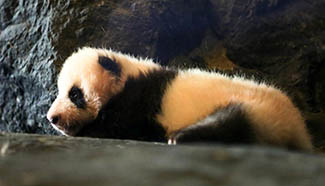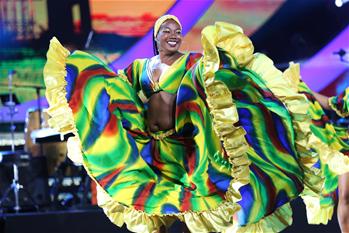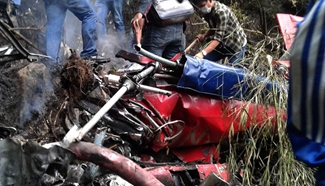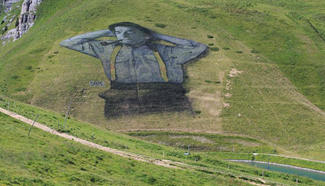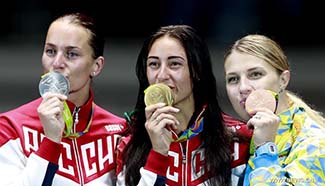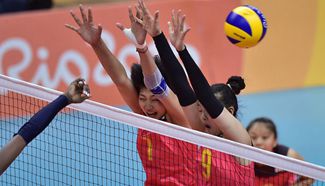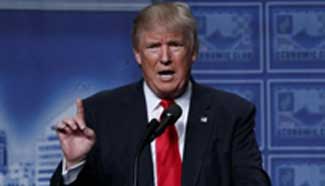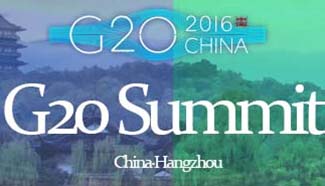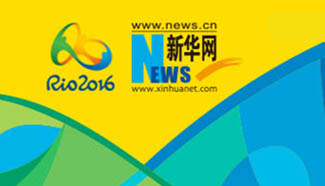RIO DE JANEIRO, Aug. 8 (Xinhua) -- A number of protests against Brazil's interim President Michel Temer took place over the first weekend of the Rio Olympics.
Temer replaced President Dilma Rousseff, who was suspended from office on May 12 by the Senate pending a full impeachment trial, which the former leader described as a "coup d'etat."
Rousseff will be judged at the end of August for fiscal irregularities in the 2014 and 2015 federal budgets, and may be permanently impeached.
Rousseff was invited by the International Olympic Committee (IOC) to attend the opening ceremony, but she rejected the invitation.
At the opening ceremony, Temer did not make a long speech, merely declaring the Games officially opened. But Temer was still greeted with boos.
During several tournaments, some protesters showed up carrying banners that read "Temer Out." Security forces confiscated the banners, and on some occasions forcibly removed the spectators from the stadium.
The action caused uproar in the country and led to an outcry on social media as Brazilians felt their freedom of speech had been violated.
But Justice Minister Alexandre de Moraes said the prohibition of banners is an administrative measure that will not affect people's freedom of speech.
"Freedom of speech is a constitutional right and will be ensured. That is one thing. Another thing is administrative restrictions, which happened not only with the IOC, but also took place at the World Cup with FIFA. The Supreme Court decided that the restriction of signs follows the Constitution," he said.
Brazilian legal experts, however, hold a different stance.
Former Head of Supreme Court Ayres Brito said that restricting the protests is unconstitutional, except in the event the protests disrupt matches.
"I see no reason for removing those people. They have every right to voice their opinions," Brito told state news agency Agencia Brasil.
But Games organizers supported the Brazilian authorities.
An IOC spokesman said that the Olympic Charter prohibited the presence of political propaganda within venues, as well as any kind of
religious or racial messages.
"Those who make political statements in the venues are requested not to. If they resist, they are kindly requested to leave," Mario Andrada told a news conference. "This is a venue for sports. They need to be focused on that."

